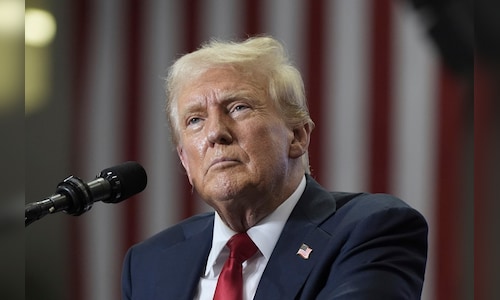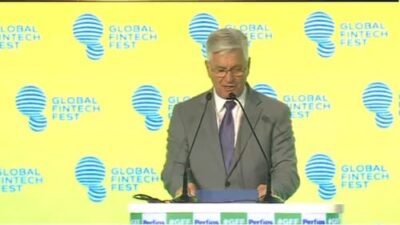White House spokesperson Karoline Leavitt shared a message from Trump stating, “Considering the substantial likelihood of negotiations that may or may not happen with Iran shortly, I will decide whether or not to act within the next two weeks.”
Trump has recently contemplated having the US escalate its involvement by aligning with Israel’s operations against Iran. His latest position indicates a retreat from previous tough rhetoric, which included urging Tehran residents to evacuate and cutting short his attendance at this week’s G7 summit in Canada to return to Washington.
Oil prices eased from earlier increases, and equity futures continued to decline following Leavitt’s remarks.
Throughout his years in office, Trump has displayed a tendency to set two-week timelines, occasionally following up but often letting them lapse without action, making “within two weeks” a familiar phrase during his time in the White House.
Leavitt explained that Trump’s statement was in response to media discussions regarding the “situation in Iran.” She chose not to delve into his timeline or his perspective on the likelihood of successful negotiations with Iran.
Trump’s objective—stopping Iran’s uranium enrichment and preventing the country from acquiring nuclear capabilities—remains steadfast, although “if there’s a chance for diplomacy, the president is always going to seize it,” she remarked.
Senior US officials are reportedly preparing for a possible military strike on Iran, with some suggesting there may be plans for an attack over the weekend. High-ranking leaders across several federal agencies have begun coordinating for an offensive, according to sources.
An Iranian missile struck an Israeli hospital on Thursday for the first time since hostilities commenced, highlighting the dangers faced by civilians on both sides. Israel’s Health Ministry confirmed minor injuries at the Soroka Medical Center in southern Israel, noting the missile hit an area that had already been evacuated.
Israel accused Iran of using a missile with a warhead that broke apart into multiple submunitions, spreading widely before detonating. A missile of this type was first revealed by Iran in 2017, according to the Center for Strategic and International Studies in Washington.
Prime Minister Benjamin Netanyahu declared earlier Thursday that although Israel’s military aim is to eliminate Iran’s nuclear and missile capabilities, “we may create conditions” to foster a change in government.
When asked if this implies targeting Supreme Leader Ayatollah Ali Khamenei, Netanyahu replied that “no one is immune.”
Netanyahu further stated on Israel’s Kan TV that the country has successfully hit over half of Iran’s missile launchers. “The number of missiles they possess matters less than the number of launchers,” he clarified.
Israeli aircraft conducted strikes on numerous military sites in Iran overnight, including a dormant nuclear reactor near Arak. This location has been under international scrutiny for its potential in plutonium production, which could contribute to future nuclear weapon creation if reprocessing capabilities are established.
European leaders advocated for diplomatic solutions, with UK Prime Minister Keir Starmer urging Trump to keep open the possibility for resuming discussions regarding Iran’s nuclear program.
US Secretary of State Marco Rubio and US special envoy Steve Witkoff met with UK Foreign Secretary David Lammy at the White House on Thursday, ahead of his talks in Geneva with the French and German foreign ministers and Iranian Foreign Minister Abbas Araghchi.
“The situation in the Middle East remains critical,” Lammy stated. “A window now exists within the next two weeks for achieving a diplomatic resolution.”
Italian Foreign Minister Antonio Tajani also held separate phone conversations with Rubio and Araghchi on Thursday, according to the Rome ministry. Anwar Gargash, diplomatic adviser to UAE President Mohamed bin Zayed Al Nahyan, called for a cessation of hostilities and a return to dialogue.
Araghchi expressed on Wednesday that Iran remains “committed to diplomacy” and has neither sought nor would ever pursue nuclear weapons. Khamenei reaffirmed the same day that he would not capitulate.



